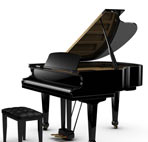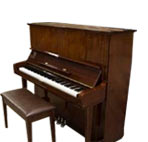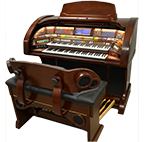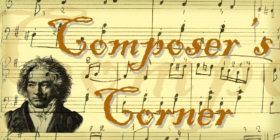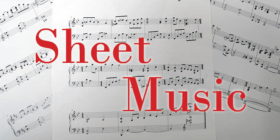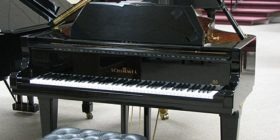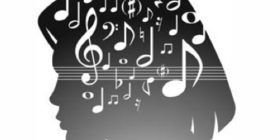Most musicians who admit to not being able to memorize music wish that they could. What could be more frustrating to a pianist than to be face to face with a beautiful instrument at someone’s home you are visiting, and whether you are asked to play or not, you feel that without your music, there is nothing for you to do but diddle a few measures or a few exercises? The feeling of not being able to play is so depressing that you wonder how different are you from someone who has never had a lesson in their life.
My fellow piano teachers and I are noticing that more and more pianists are playing from sheet music—even in the concert setting. So, the question comes up: to memorize or not to memorize?
Memory of music for performance started historically with Franz Liszt, who had other innovative performance habits (like turning the keyboard perpendicularly to the stage, so his profile would be seen clearly). When Clara Schumann, perhaps the most famous woman performer of that period, attended a concert of Liszt’s she wrote in her diary that now it would be impossible for pianists to play from the music. Rising to the challenge, she too began to forsake the music, only to report in her diary at a later date that it was actually easier to perform from memory.
Types of Memorization
So, how do we memorize? There are several types of memorization, and working on them all will help reinforce your general memory of the piece.
-
Kinesthetic memory: After much practice finger memory sets in for most pianists…This is nothing one should depend upon, however, but it is fascinating to note how the kinesthetic drill of one note after another makes the music part of your motor skill and seems to bypass the brain entirely.
-
Visual memory: Visually, we have an idea where we are on the page of music as we are playing even if we do not have a photographic memory of each measure. After practicing a piece from memory, we also have a visual memory of seeing where the fingers are moving in sequence on the keyboard.
-
Auditory memory: This usually takes care of two things: the rhythm and the dynamics (including phrasing, etc.). We pre-hear what we want the music to sound like, as we are aware of what we are playing and then hear result too. How often does a student or inexperienced performer stop after hearing a wrong note and try to correct even though they have successfully passed the point of error?
- Interpretive memory: Consider how we communicate the intentions of the composer as distilled through our emotional involvement with the piece of music.
Using the music during performance does not always give the confidence that one imagines it will. I have seen students forget to turn a page and get lost several measures later. Why does this happen? Probably because the piece is already memorized, for the most part, and the pianist with a little more work could play it from memory. Remember what Clara Schumann said.
How to Memorize
It is helpful to memorize starting points of new sections, and to be able to start from those sections cold so that you can always jump ahead to the next section if you get completely lost in the previous section. Never go back and try to repeat that passage. First of all, there is no erasing errors that have already been played, and you will be so anxious about the sticky spot coming up you will almost certainly be unable to play it well. Remember to move on. Going back can spell disaster.
Look for the patterns. Memorize a little at a time. The mind will only hold just so much at one sitting, like a sponge that will only absorb so much liquid without having to be squeezed out.
You do not have to have a large repertoire. Start with one or two short pieces: a Chopin prelude, a Bach dance, a Schumann piece, a Grieg Lyric song. You will not only have great gratification, you will give lots of pleasure to others too.
Memorize! It is worth it.


